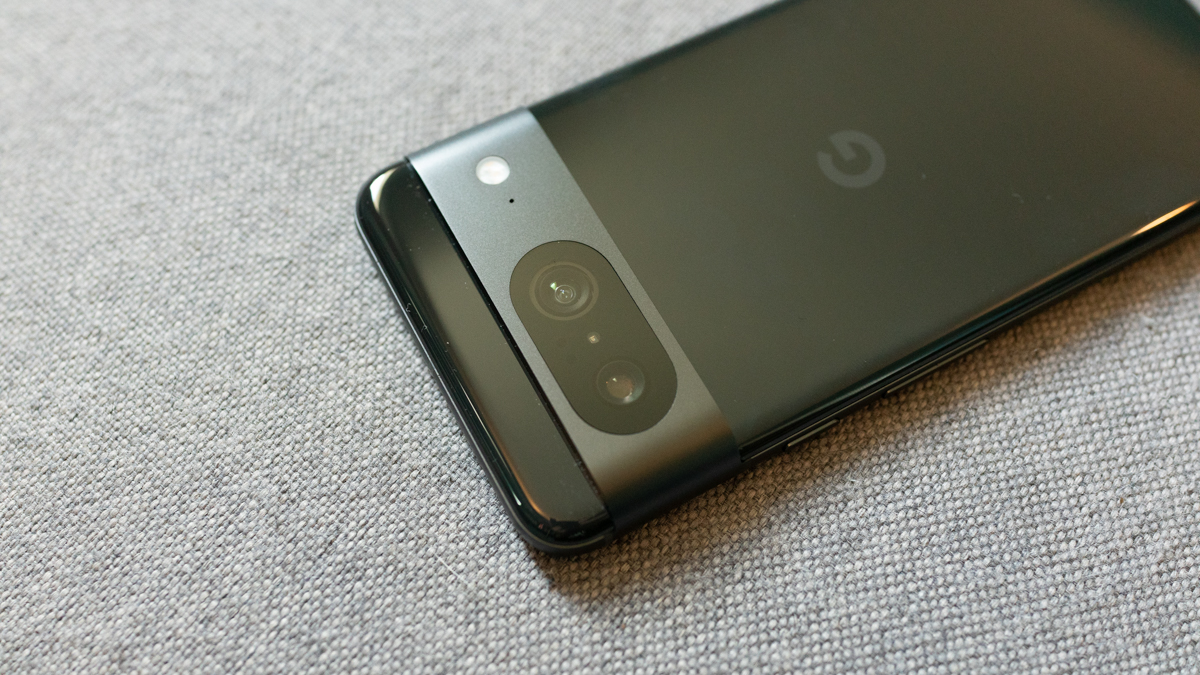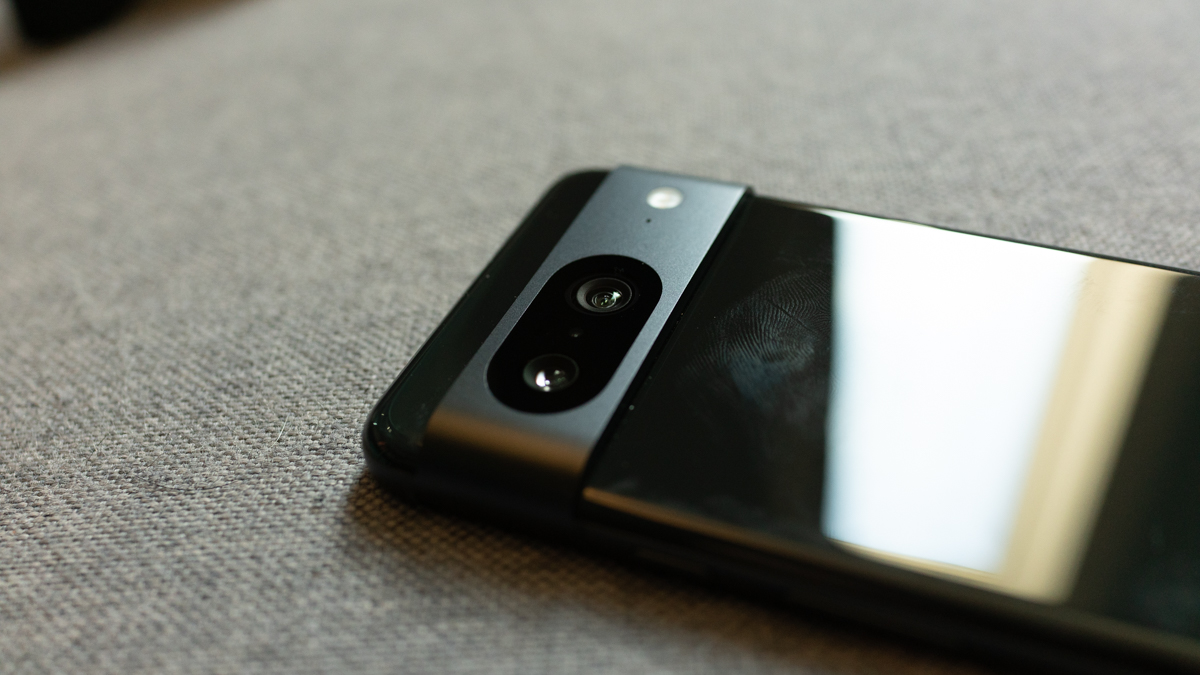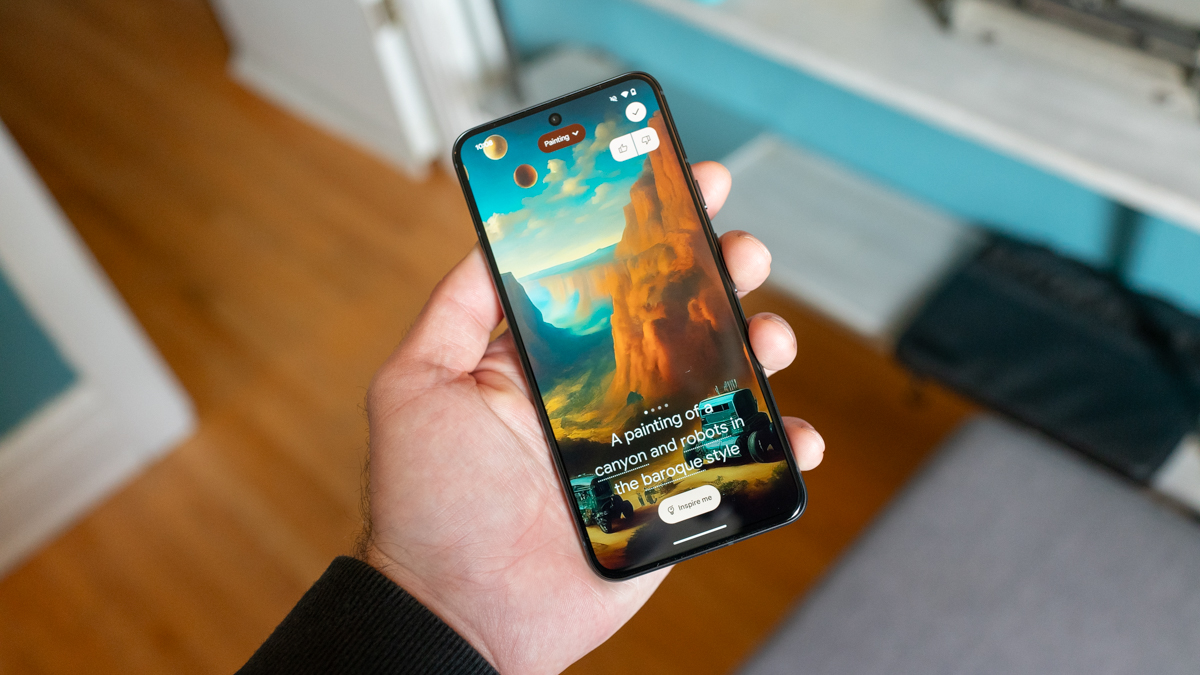Google’s Pixel 8 smartphone is shipping tomorrow, and while the update this year was leaked far in advance of even the official announcement, knowing what a phone looks like on paper is a very different thing from knowing what it’s like to use and own one. I’ve had both the Pixel 8 and the Pixel 8 Pro (more on that one in Brian’s review) for a week now, I can say for certain Google has made an excellent entry-level flagship for the Android crowd.
The basics
For the first time in recent memory at least, Google has opted to actually reduce the screen size on one of its flagship devices when compared to last year’s model. The Pixel 8 has a 6.2-inch OLED, which is ever so slightly smaller than the Pixel 7’s 6.3-inch screen. It retains the same resolution at 1080 x 2400, which gives it a slight edge on pixel density, and it also comes in physically smaller at 5.9″ x 2.8″ x 0.4″ (it is a bit deeper than the last gen) and 187 grams.
Inside, there’s the new Tensor G3 custom chipset that Google uses on both this and the Pro model, and there’s 8GB of RAM. It has an under-display fingerprint sensor, an improved face unlock feature, a USB-C 3.2 Gen 2 port with improved 27W wired charging, boosted 18W wireless charging, and Wi-Fi 7, Bluetooth 5.3 and mmWave plus Sub 6GHz 5G support in markets where that’s available.

The camera is an improved 10.5 megapixel, 95-degree model on the front, and on the back there’s a new 50-megapixel wide with a 12-megapixel ultrawide (which has a wider, 125.8-degree field-of-view versus the Pixel 7).
The battery on board is a bigger, 4,575 mAh unit that improves on last year’s in capacity, but Google claims basically the same “all-day” battery as last year’s versions, with up to 72 hours of use if the battery saver mode is engaged.
Design
The Pixel 8 looks similar to the Pixel 8 Pro, but includes some tweaks to its physical design that make it better, if not drastically different. The screen no longer curves at the edges around the sides, which is definitely a plus for viewing content, and at the corners the phone is more rounded, which is just more aesthetically pleasing. The rounded sides feel good in the hand, and the matte finish on the aluminum edges contrasts nicely with the glossy glass back (the 8 Pro inverts this by the way, which is a subtle but interesting differentiator between the two). The gloss black version I tested picked up fingerprints incredibly easily.

While the size difference between the 7 and the 8 is very small (as is the difference between it and the 7a, which I also happen to have handy for comparison), it feels much more significant in practice. This is definitely aided by the more aggressive rounding on the corners of the phone, which overall give it a more slim and less severe look and feel. The 8 feels like the perfect-sized device for my hands — much more so than either the iPhone 15 Pro Max (my personal phone) or the Pixel 8 Pro, both of which feel oversized.
Google has stuck with the camera bump arrangement of the past few Pixel iterations, putting the lenses horizontal next to one another in a camera bridge that spans the whole width of the phone. This remains a good design choice in my opinion, alleviating the rocking problem when the phone is laid flat on a surface on its back, and also providing some visual distinction that has become synonymous with Google’s phones.
One thing that I wish Google had included here was Qi 2.0, the new standard for Qi wireless charging that includes a MagSafe-compatible magnetic attachment element in the spec, which would make using it with the wide range of available magnetic iPhone accessories possible.
Features and performance
The Google Pixel 8 definitely gets performance improvements versus the Pixel 7, thanks in part to Google’s Tensor G3 processor, as well as camera hardware and software improvements. The display also now maxes out at 120 Hz, versus just 90 Hz on the Pixel 7, and matching the max refresh rate of the Pixel 8 Pro.
In practice, what you’ll find from the G3 is a very snappy phone that can do a lot of interesting things with machine learning and even some LLM generative AI locally on the device. If you’re just concerned about whether the Pixel 8 is powerful enough for everyday smartphone use, then consider yourself reassured: No one will complain about the device’s day-to-day performance when it comes to playing video, rendering websites, doing light photo and video edits and more, for instance.

Google really emphasized the extent to which the Tensor G3 powering its Pixel 8 lineup enabled AI applications, however, and that’s where the company now has a growing differentiator that sets it apart from the vast field of Android-powered smartphone hardware competitors. For now, this mostly takes the shape of light touches that are nonetheless very accessible for even casual users: The new generative AI wallpaper capability, for instance, makes creating a unique and fun backdrop for your lock and home screen incredibly easy and fast.
Areas where Google’s devices already excelled also get improvements, including in live transcription, live translation and more. The extra ML processing prowess of the G3 means that if that’s important to you, you’re not going to be better served than with the Pixel 8.
Likewise, computational photography and photo editing remains unmatched with the Pixel 8. The camera here gets a nice hardware upgrade, and you can tell that Google is making the most of that additional capability to deliver even better auto-processed images. I’ve included some samples below, but rest assured Google remains the low-light smartphone camera king, and in general offers the best mobile photo experience you can get — regardless of your operating system preference. For more about the cameras in general, and in particular what you get by going up to the Pixel 8 Pro, check out my dedicated Pixel 8 camera review.
Bottom line
Google definitely didn’t reinvent the wheel with the Pixel 8 versus last year’s model; instead, it made smart, focused upgrades in the areas that matter most to how people use their devices today, and to how it’s betting they’ll want to use them in the future. The boosted machine learning and AI capabilities address the latter, while the improved camera performance and physical design tweaks focus on the former.
The biggest question for potential customers is for upgraders, since the Pixel 8 is starting at $100 more than the Pixel 7, and again, many of the updates were modest compared to last year. There are less tangible benefits to consider, however, like how the 8 gets a full seven years of guaranteed software support from Google, which is not the case for last year’s phone. That and the quality of life benefits that come with its upgrades and future-focused G3 processor could more than account for a $100 premium.





































Comment